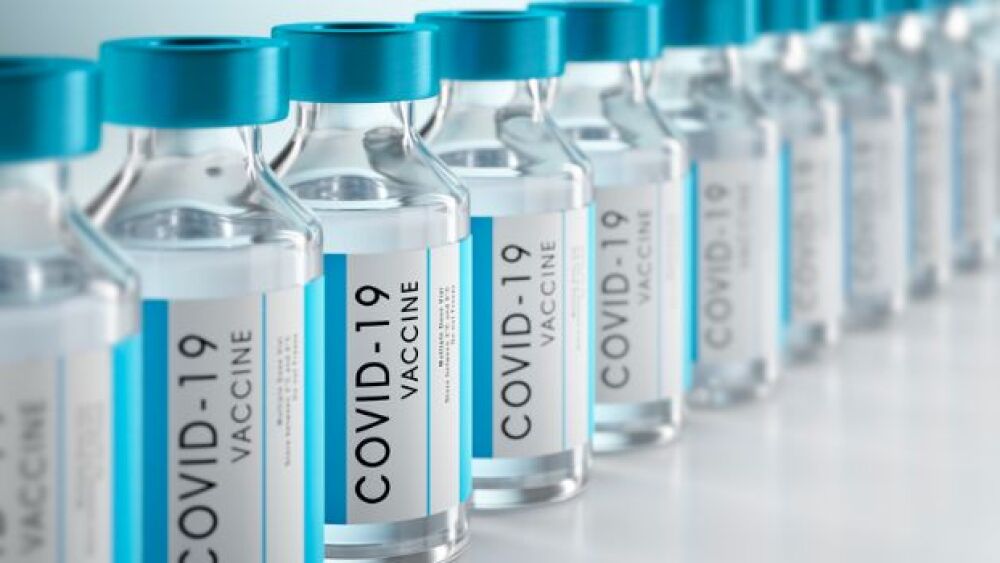The LPN technology used in the mRNA COVID-19 vaccines has been the target of numerous patent challenges. Here’s a look at recent biopharma patent disputes.
The lipid nanoparticle (LPN) technology used in the mRNA COVID-19 vaccines has been the target of numerous recent patent challenges, even before the approval of the vaccines.
Biopharma companies are often involved in patent infringement lawsuits, partially because much of the science drugs and technologies are based on are published publicly, but also because there’s so much money involved.
Here’s a look at recent biopharma patent disputes.
Texas Court Finds Daiichi Sankyo’s Enhertu Infringes Seagen Patent
Daiichi Sankyo Co. announced that the U.S. District Court for the Eastern District of Texas found that its Enhertu infringes Seagen‘s U.S. Patent 10,808,039. Further, they found the infringement was willful and awarded Seagen $41.8 million in damages.
Enhertu (trastuzumab deruxtecan) is an antibody-drug conjugate made up of the humanized monoclonal antibody trastuzumab linked to the topoisomerase I inhibitor deruxtecan. It is indicated for the treatment of human epidermal growth factor receptor 2 (HER2)-positive breast cancer and gastric or gastroesophageal junction (GEJ) adenocarcinoma. It was developed jointly with AstraZeneca.
Daiichi Sankyo indicates it plans to continue defending its patent. The court hasn’t yet revealed whether to award a running royalty on future sales of the drug until the ‘039 patent expires in 2024.
Alnylam Escalates Patent Claims Against Pfizer and Moderna COVID-19 Vaccine Patents
Alnylam has alleged that Pfizer, BioNTech and Moderna infringed a newly obtained patent on the mRNA delivery system used in their COVID-19 vaccines. The lawsuits argue that Moderna and Pfizer’s mRNA vaccines violate an Alnylam patent on lipid nanoparticle (LNP) technology for delivering the mRNA in the COVID-19 vaccines. Alnylam filed the lawsuits the same day the U.S. Patent and Trademark Office issued the patent.
Alnylam initially sued Pfizer, BioNTech and Moderna in March over allegedly infringing an LNP patent. In May, Pfizer denied the allegations and claimed that Alnylam understood the vaccine is “outside the scope of what Alnylam actually invented.”
In the original lawsuit, Moderna argued that they were immune from Alnylam’s claims because the company provided the vaccines under the U.S. government’s national vaccination program.
The new lawsuits, just as the earlier ones, demand an unspecified share of vaccine royalties. Pfizer has projected $32 billion in sales of its COVID-19 vaccine this year, with Moderna predicting $21 billion.
CureVac Sues Pfizer-BioNTech Over COVID-19 Vaccines
CureVac filed a lawsuit in a German court against BioNTech seeking “fair compensation for infringement… of CureVac’s intellectual property rights” related to technology used in manufacturing the Pfizer-BioNTech COVID-19 vaccine. BioNTech reports it will “vigorously defend” the allegations. CureVac’s own first-generation mRNA COVID-19 vaccine was pulled from regulatory review in 2021, deciding to focus on a second-generation vaccine instead.
In a statement, CureVac said, “The CureVac intellectual property portfolio protects multiple inventions that are considered essential to the design and development of BioNTech’s SARS-CoV-2 mRNA vaccine, among others. These relate to the engineering of mRNA molecules, including sequence modifications to increase stability and enhance protein expression, as well as mRNA vaccine formulations specific to SARS-CoV-2 vaccines.”
CureVac emphasized that it does not plan to file for an injunction or take any legal action that would impede the vaccine’s production, sale or distribution.
BioNTech, on its part, stated, “BioNTech values and respects valid intellectual property rights. BioNTech’s work is original, and we will vigorously defend it against all allegations of patent infringement. However, we are aware that it is not unusual that other companies in the pharmaceutical industry, having witnessed the success of Comirnaty, are now suggesting that the vaccine potentially infringes their intellectual property rights.”





